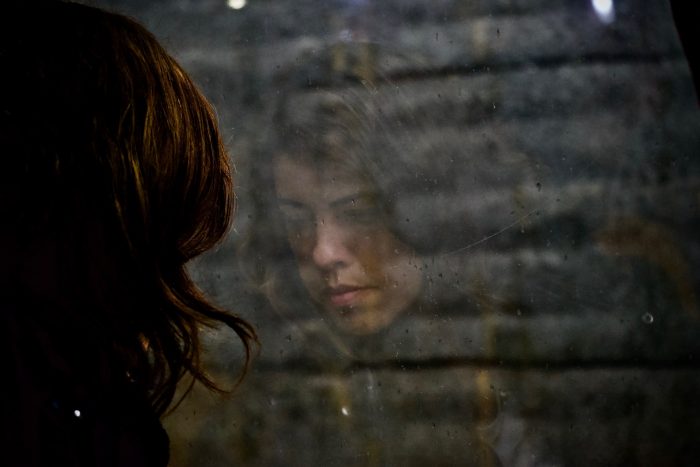A few weeks ago one of my teenage son’s friends said to me, “I feel like my social anxiety has gone up this past year, since COVID.”
Huh, I thought.
While I hadn’t considered that possibility, it made complete sense to me that he would develop some social anxiety as a result of this pandemic.
Since that time, I’ve had several clients in my private psychotherapy practice admit to similar experiences. Feeling uncertain, insecure, and struggling with self-doubt in the wake of a long-awaited gathering of close friends is becoming a common experience.
“This is so unlike me,” they say. “It’s the strangest thing…I found myself overwhelmed by the gathering itself and overanalyzing everything that had transpired.”
When we dig deeper, we find that what’s happening for my clients is thematically similar to what happens as a result of developmental trauma.
Fear of losing people or being abandoned, lack of safety in knowing that their friendships are sustainable and will endure despite minor interpersonal offenses, and the development of a strong internal critic to “keep us in line” are all classic examples of the negative effects of relational trauma.
Typically this happens over the course of decades, while growing up in a family system in which one is unable to get their basic emotional needs met by their caregivers. However, this past year of profound isolation, hypervigilance, and disconnection may be creating a similar impact.
As a specialist in relational or developmental trauma, I often see the signs of interpersonal trauma as early as my first phone call with potential clients.
“I just have this perfectionistic streak…I can be really hard on myself,” they say. My clients reveal their lifelong struggles with me, eager to get relief and in the hopes that I can rid them of these painful patterns.
But lately, clients who have not faced these challenges before are beginning to have the disquieting experience of a shaken sense of stability and uncertainty in their personal relationships.
The root of all social anxiety is fear, and symptoms typically include concerns about being judged, unintentionally offending someone else, or being publicly humiliated or embarrassed. Feelings of insecurity and self-consciousness are also common.
Normalizing our shared humanity and its inherent imperfections, along with teaching communication skills and calming mindfulness techniques, are typical in working with this otherwise debilitating circumstance. Exploring unrealistic personal expectations and a tendency to focus on the negative aspects of interpersonal encounters can also be ways to counteract the relentless oppression of social anxiety.
For trauma survivors, establishing a certain degree of safety and trust are of primary importance in any relationship.
Those two factors are the ones that have been essentially upended over this past year.
Can we trust that we didn’t just pick up COVID-19 at the grocery store? If we get it are we going to give it to everyone we love? Will we be hospitalized and die alone? Was that person’s face grimacing and angry or smiling and friendly beneath that mask?
The ways that we typically assess safety have gone out the window as we’ve been myopically focused on staying out of harm’s way.
Our vulnerability has been exposed as we’ve lost over two million members of our species, and it’s been scary enough to keep us all locked away from the things that help us feel most connected and alive.
So how do we begin reconnecting and reorienting to the social world amid these pervasive evolutionary mechanisms?
Slowly, gently, with tons of self-compassion, and by bringing our newfound vulnerability with us.
It’s a new era of connection. We’ve now got Zoom and movies premiering via a multitude of streaming services at our fingertips at home. We can get groceries delivered and our favorite restaurants now offer take-out. We don’t have to go out, but most of us desperately want to.
We are starved for real human connection: hugs, smiles, and touch are ways that we typically regulate one another and connect in this otherwise deeply individualistic society.
As we begin to navigate this post-apocalyptic world, my hope is that we can take our vulnerability with us. Sharing our experiences of isolation with one another as well as our newfound uncertainty with those we trust can be a good place to start.
Renegotiating the social contracts we have with our friends can also remind us of where we stand and what values our friendships are built upon.
“I feel anxious about this get together.”
“It has been so long that I feel out of practice with socialization!”
“We were always so close, can I still count on you to let me know if I’ve offended you or if there is anything we need to discuss or if anything is bothering you?”
“Let’s check in with each other again in a few days to see how each of us is processing this get together.”
As we continue to move toward more vaccinations and fewer fatalities, we will be seeing more and more of one another. Resuming the typical proximity between acquaintances, friends, and family will be an inevitable adjustment.
My hope is that we can not only get back to where we once were, but that this pandemic will have brought us closer to our shared humanity and vulnerability in a ways that are life-affirming and create even stronger connections than those we had before.
~








Read 10 comments and reply